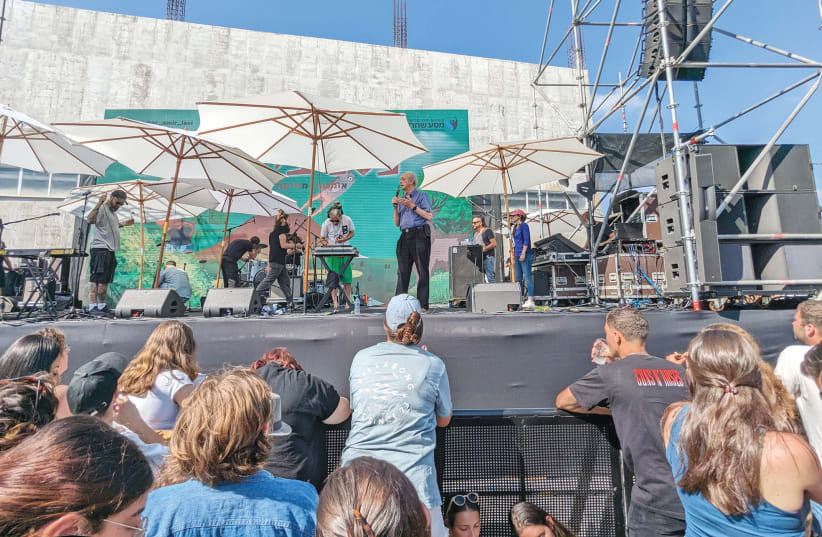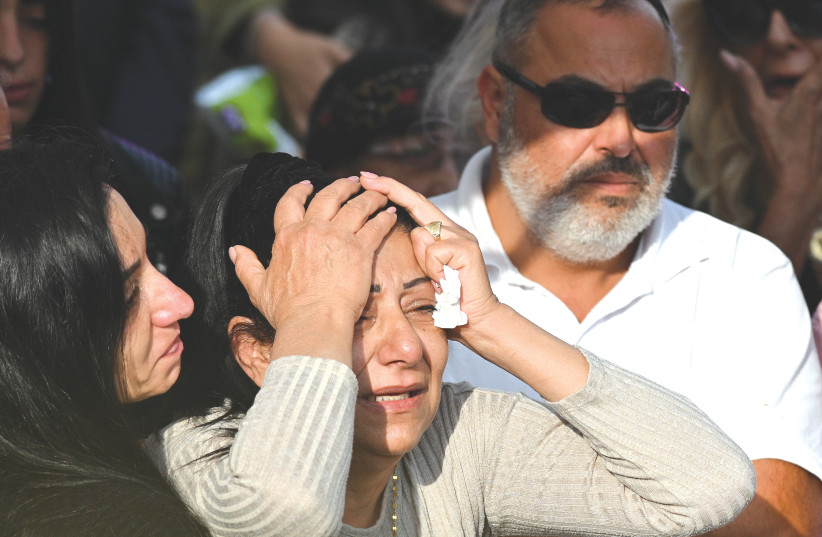Israeli society has a long history of coping with trauma and grief, but in our current situation, it seems we must learn to cope anew.
Traditionally, in times such as these, with so many losses that one dreads hearing the news in the morning, the Israeli reaction has been to clean up and move on. Two or three hours after a terrorist attack, the sites are already cleared of debris and, on the surface, life is back to normal. This desire to move on quickly is evidence that we are in survival mode. We see this in soldiers and their families who have to function under high stress. The attitude is “In combat you don’t think, you don’t feel, you do.”
But if we continue in that mode off the battlefield, charging on and seeing the world as a place to just survive in – illustrated by the way Israelis drive – there is a price to pay for that. Israelis hardly take the time to lean back and appraise what has happened.
Survival mode
However, in Israel’s reaction to the horrors of October 7 and the ongoing war, the pendulum seems to have swung in the opposite direction. We are already seeking ways to memorialize the tragedy. There is much greater awareness of trauma, and the IDF itself is devoting time and resources to soldiers’ mental health.
Nevertheless, common statements such as “the whole country is traumatized” and “everybody needs therapy” can do more harm than good. It makes people look for symptoms of trauma and diagnose their reactions as pathological, when in fact it is healthy and expected to feel sad or afraid. Of course, we are afraid. That’s not psychopathology – that is healthy.
In addition, there is almost a frenzy of activity, with millions of dollars being spent and hundreds of nonprofits offering treatment, not all of it based on scientific evidence. Many people will benefit from these treatments, but many more may doubt themselves if they aren’t “healed.” We need to recognize that a person or a society can’t measure post-traumatic symptoms and can’t really begin to heal while they are still in survival mode.
The challenge is how to get out of survival mode.
To do so, we must process our experiences – that means bringing back the images, together with the emotions that were put to one side, and integrating what one thinks and feels so that this can become a memory. That is an enormous challenge because it involves reviewing what you have gone through or done.
At Metiv, the Israel Psychotrauma Center, we do a lot of work with soldiers who have left Gaza, before they go home. Combat soldiers often need support to return to “civilian” mode – a mode that allows them to feel, be intimate, have patience, and be able to be mindful.
With grief, when dealing with the loss of a close friend or relative, the process is similar. The most difficult trauma is losing a child, causing grief that continues throughout a person’s life span. That doesn’t mean that this is a disorder, it’s not a question of “getting over” it – people live with grief, but can still function, maintain relationships, and experience a full range of “normal” feelings. But a percentage of people need help to get over those losses.
Individual therapy for bereaved parents has not proven particularly effective. We, at Metiv, have identified the need for a different approach and have developed couples therapy for bereaved parents. Therapy can help people get over the loss of a partner or parent; but for bereaved parents, ongoing support is vital, as they see their child’s friends grow up, get married, and have children and this will continue to hurt. Thoughts such as “my child didn’t get to experience this” are inevitable. Often parents are hesitant to speak with their spouses about their grief, wishing to avoid burdening them. Our model helps them to support each other.
In addition to processing, the other important element is time.
People react to and heal from trauma in different ways and at different speeds. With the ongoing war, it’s hard to build a narrative – and Israeli society has yet to process it. Some Israelis see October 7 as a continuation of the Holocaust. Does such a narrative help or hinder us? I’m not sure that it is helpful.
For most, this is not the time for processing. We need time. We’re still bracing ourselves for “What’s next?”
Processing will happen when we feel safe enough to get out of survival mode. In the meantime, instead of emphasizing psychopathology, the best strategy is to develop togetherness and systems for people to support each other in communities.
Longer-term thinking is needed to prepare an infrastructure for the treatment of PTSD, for the months, years, and decades ahead. The combination of community support and strengthening the mental health system with appropriate methods that will make people feel heard and supported will be crucial in the coming years.
The writer, an expert with more than 40 years of experience in trauma treatment, is the founding director of Metiv, the Israel Psychotrauma Center, located at the Herzog Medical Center in Jerusalem.

